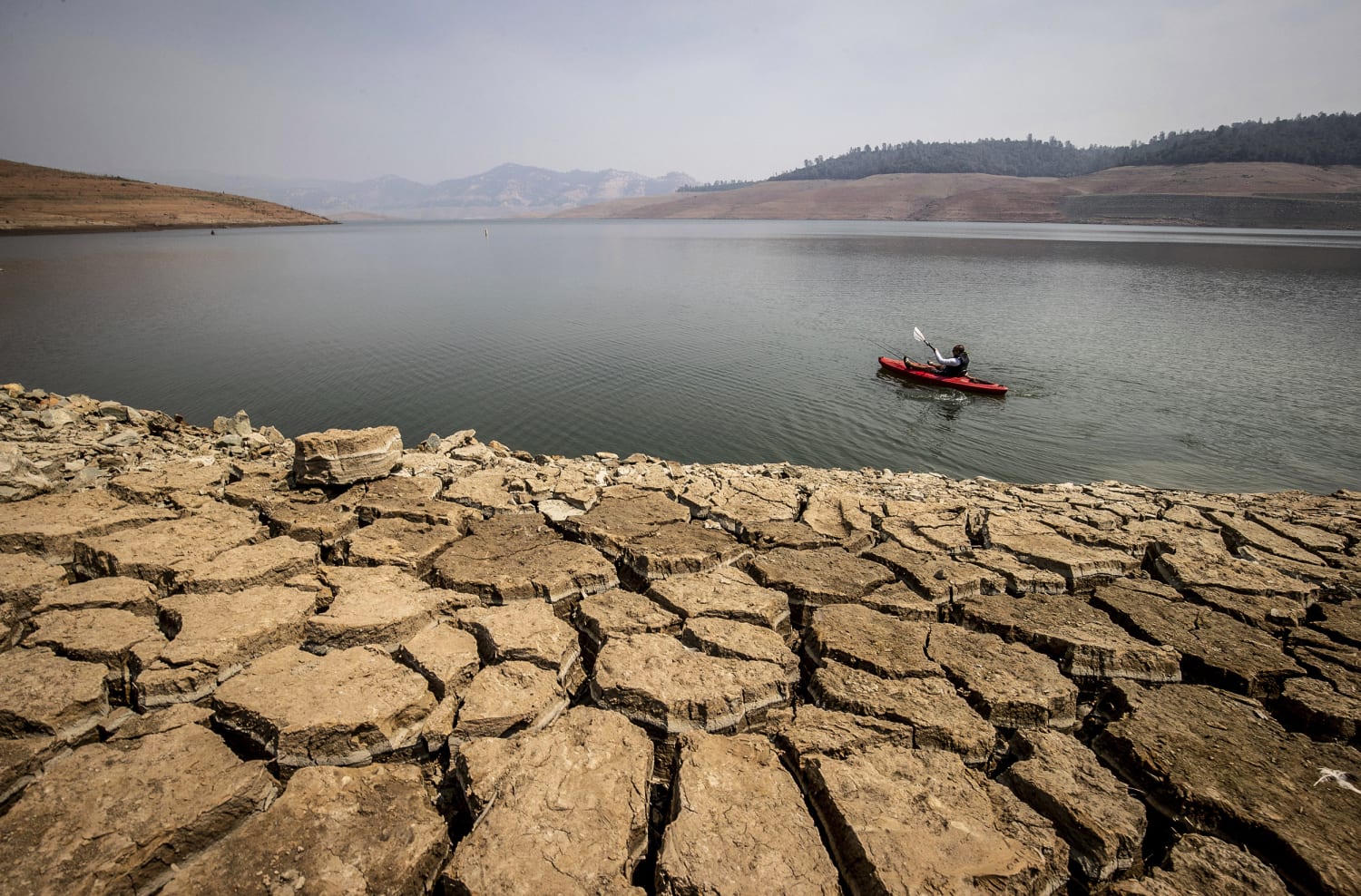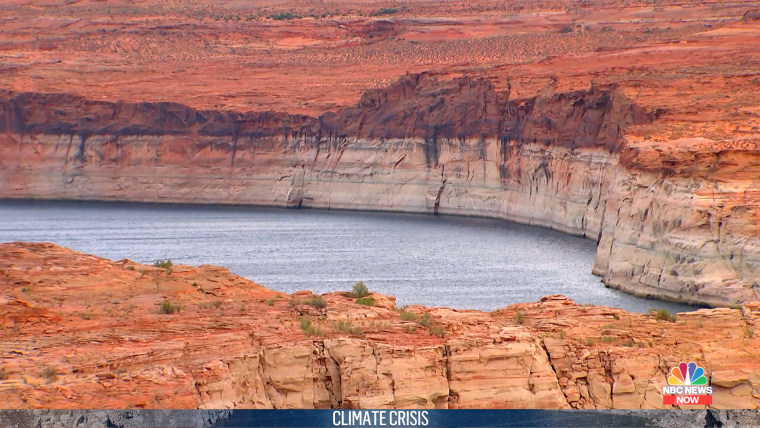WASHINGTON — Nearly two dozen federal agencies on Thursday released reports identifying major threats that climate change poses to their departments and how they plan to respond, underscoring the enormous policy challenges the U.S. faces as the planet continues to warm.
The reports, which President Joe Biden asked each agency to prepare in a January executive order, detail how climate change will reach all corners of everyday life — from where we live, to what we eat and how we get to work.
Twenty-three agencies released climate-adaptation plans, including the departments of Agriculture, Defense, Homeland Security, Education and Transportation, among others. Each report offers candid descriptions of how climate change is already impacting the federal government’s work and what threats the country faces as climate change continues to worsen. The reports outline solutions, including investing in more resilient infrastructure, ensuring that new buildings and facilities are green and educating employees on climate change.
Changes in temperature, increase in floods and droughts, more pests and disease will all impact America’s food supply, according to the Department of Agriculture, while the Department of Housing and Urban Development warned that affordable housing “is increasingly at risk from both extreme weather events and sea-level rise.”
Health and Human Services said not only are more people exposed to deadly heat and floodwaters due to climate change, but exposure to certain infections also increases as the life cycles of ticks and mosquitoes change. Severe weather disasters contribute to anxiety, depression and other mental health impacts, they added.
The reports released on Thursday are one of the first agency-wide looks at the impact of climate change since the Obama administration, when the federal government conducted a similar review. Government research into climate change largely stopped under President Donald Trump, who publicly cast doubt on the reality of human-caused global warming.
The agency reports come as the U.S. recovers from its hottest summer on record this year and after the United Nations released an alarming report in August warning that the global community has an incredibly small window of time to dramatically cut fossil-fuel emissions or face catastrophic consequences.
Biden took office promising to make climate change a top priority, but he has been criticized by some Democrats and activists who say that he has not responded with enough urgency. As Biden continues to negotiate his infrastructure and social spending bills with lawmakers in Congress, advocates have voiced concern that climate initiatives could be watered down or cut altogether from the final plans.
In its report, the Department of Education said that more than a million students in California alone were impacted by school closures due to wildfires during the 2018-2019 school year and following Hurricanes Maria and Irma in Puerto Rico, students missed an average of 78 days of school. A 2016 flood in West Virginia cost $130 million in damages to nearby schools and there are more than 6,300 schools nationwide servicing 4 million students located in a floodplain.
The Department of Transportation warned that as temperatures increase, asphalt roads degrade which leads to more traffic. Hotter temperatures also limit how far aircraft can travel and how much they can carry. Worsening major weather events could lead to widespread flight cancelations “for extended periods of time.”
In the introduction to his agency’s report, Defense Secretary Lloyd Austin wrote that around the world climate change is a “destabilizing force” and in just the past few years climate-related events including wildfires and floods have forced U.S. military bases to evacuate.
Severe droughts and storms, especially in Mexico, Central America, and the Caribbean, could “increase population movements, both legal and illegal, across the U.S. border,” according to the Department of Homeland Security. Higher temperatures, the report warns, also can change the pattern of diseases, putting the public, plant and animal health at higher risk of illness.
Each agency also emphasized the need to prioritize vulnerable populations who will be most at risk to climate change, mirroring the Biden administration’s commitment to racial equity. The Department of Transportation, for example, included a section in its report on “climate equity” that lists goals such as “alleviating the impacts of heat, poor air quality, vector-borne disease, and other climate change impacts when siting and designing projects.”
Biden is expected to travel to Glasgow in November for the annual U.N. Climate Change Conference, where world leaders are supposed to provide updates on goals that were set in 2015 when the Paris agreement was signed.
Biden has pledged to cut U.S.greenhouse gas emissions at least in half by 2030 as part of the U.S.’s new commitment to the landmark pact.
Source: | This article originally belongs to Nbcnews.com











